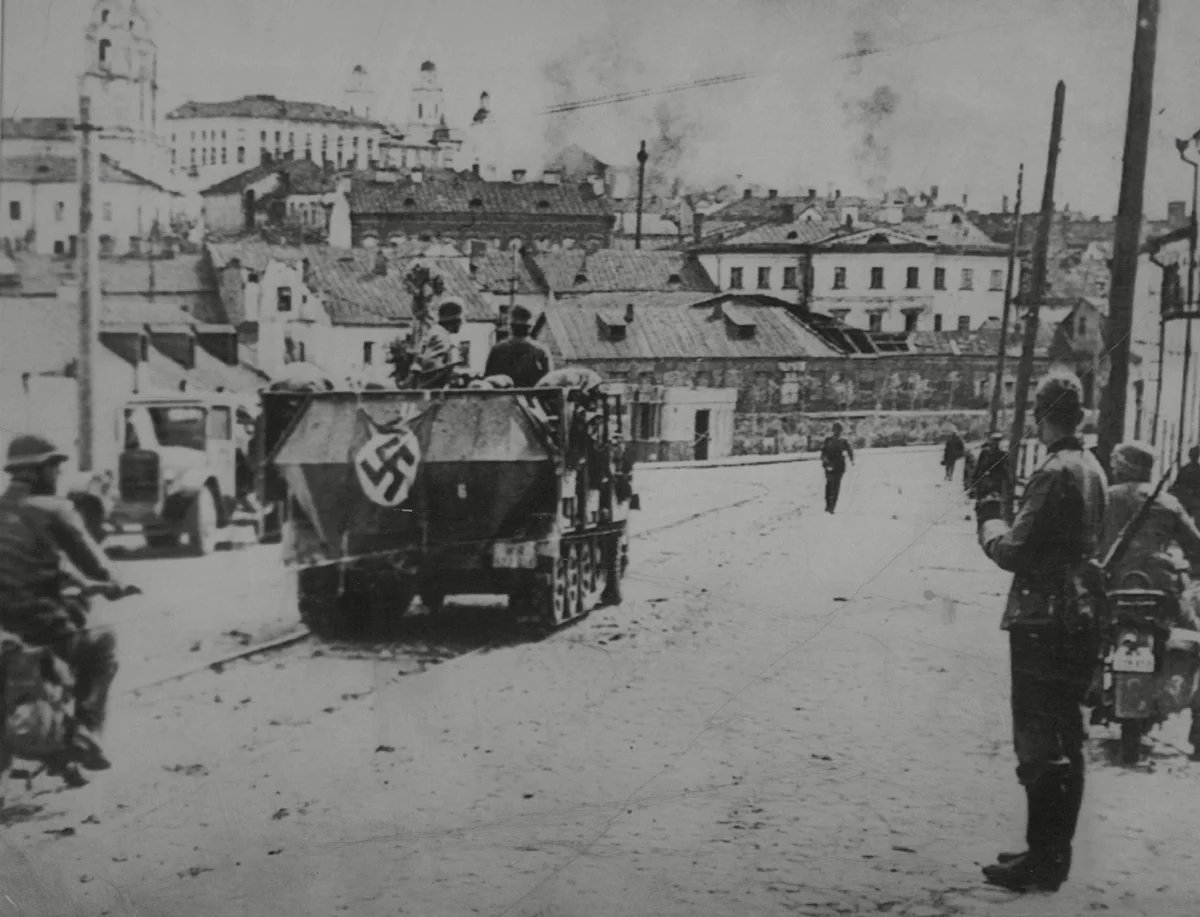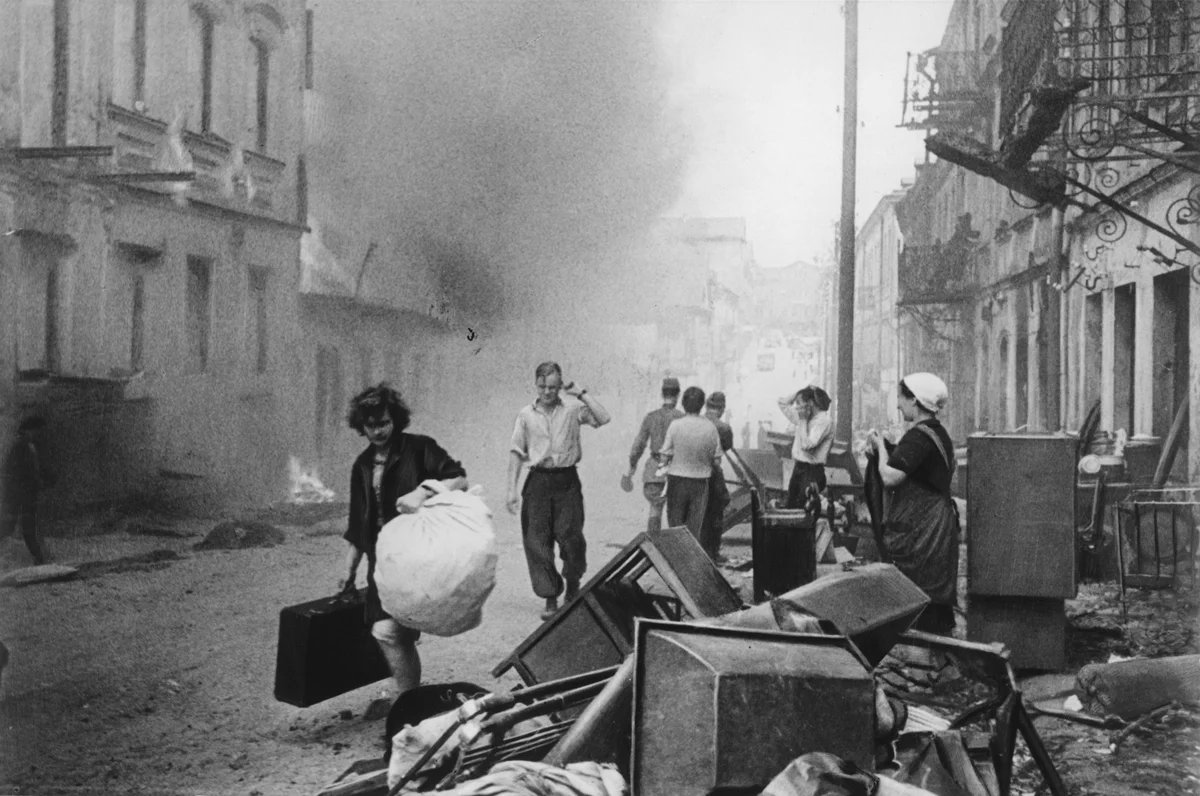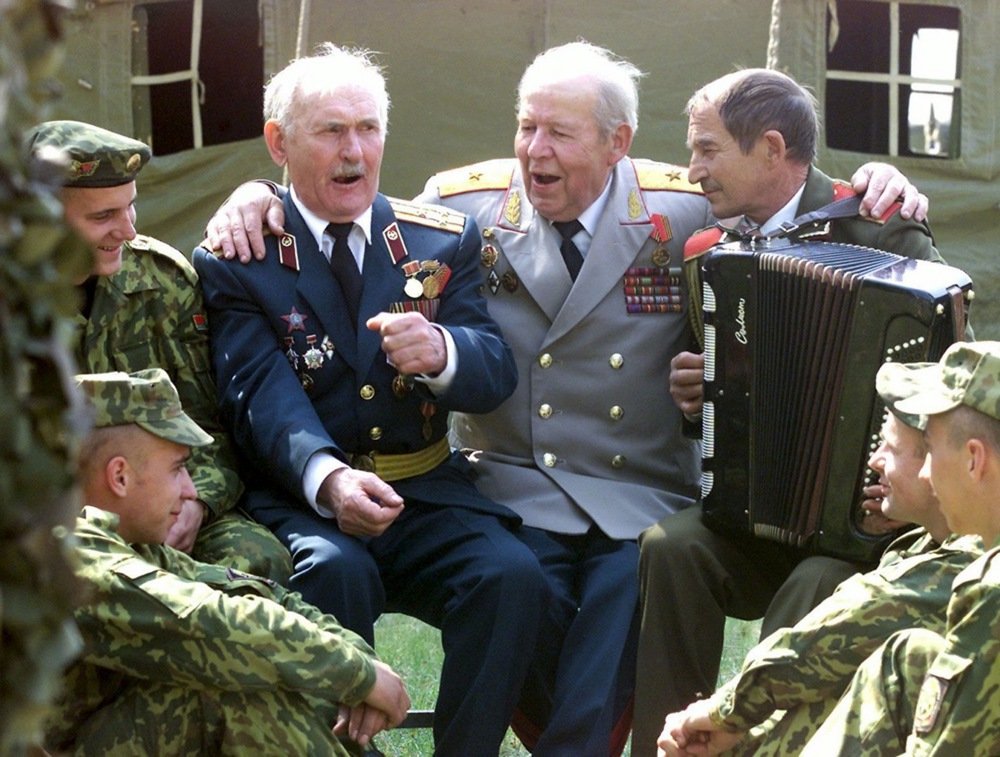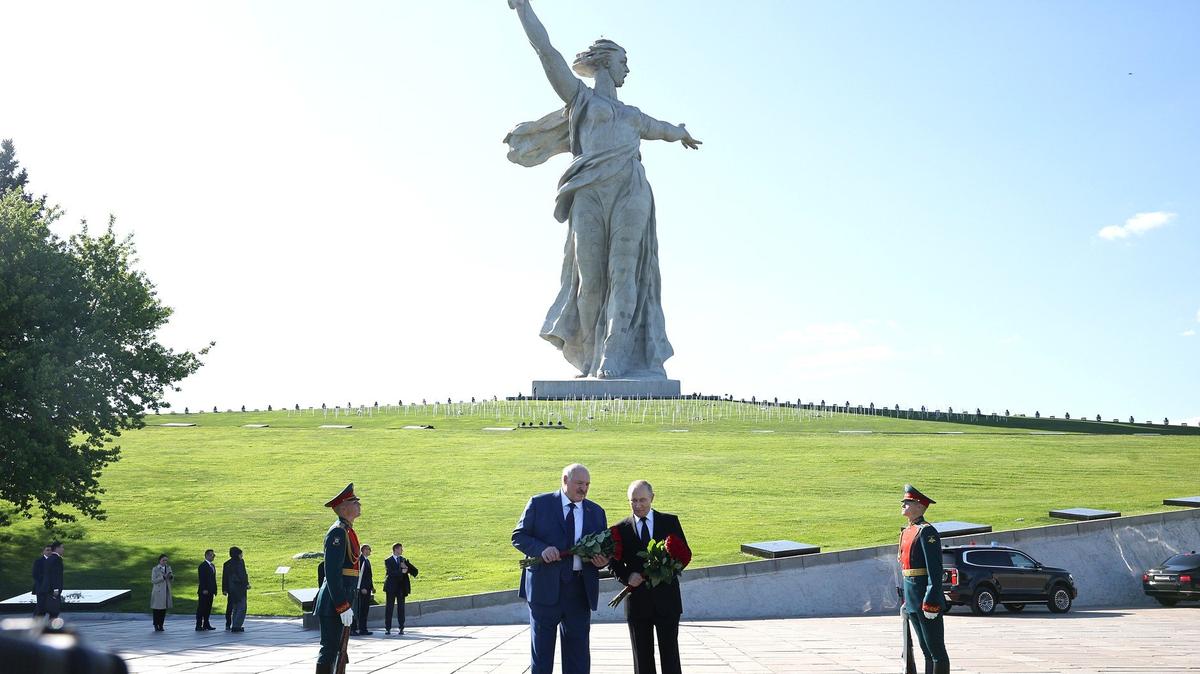On 29 April, Vladimir Putin and Alexander Lukashenko stood together underneath an imposing Soviet-era statue dubbed The Motherland Calls. They were in the southwestern Russian city formerly known as Stalingrad — now Volgograd — honouring the memory of the soldiers who fought in the city’s eponymous battle, in which the Soviet Union suffered more than a million casualties. A solemn photo accompanied the leaders’ carefully choreographed meeting, but among the bouquets and medals, Putin offered something infinitely more valuable to his Belarusian counterpart: a new national narrative.
Speaking at a forum called Great Heritage — Shared Future, Putin solemnly declared: “Today, the President of Belarus and I paid tribute to the defenders of the city, who covered themselves with eternal glory in the battles for Stalingrad. They fought to their deaths, just like the heroes of the Brest Fortress, the defence of Minsk, Leningrad and Sevastopol.”
In this all-too-familiar list of patriotic battles, one city was notably missing, Odesa, and another was unexpectedly included: Minsk. The “heroes of the defence of Minsk” — words not usually uttered in historical accounts — are a generous gift indeed from Putin to Lukashenko.
Historical reality
For any native of Minsk, World War II is etched into family memories: stories of how the Communist Party leadership fled the city in June 1941, stuffing their cars with household plants, not essential supplies, became the lasting symbol of their ignominious escape. On 28 June 1941, German troops entered Minsk without a fight. The Brest Fortress, further west, continued to resist, but contrary to Soviet schoolbook tales, it did not halt the German advance.
There was no organised defence of Minsk; the city was leaderless, without weapons, without troops.
In fact, the Wehrmacht swept across Belarus almost unopposed. Most Soviet troops had already been redeployed, engaged in military exercises, or hastily pulled back by commanders.
According to historian Igor Kuznetsov, a Belarusian expert on World War II and Stalinist repression, the idea of a “defence of Minsk” is entirely novel. “Even in Soviet historiography, this was delicately glossed over,” he explains.
He knew of one instance of resistance involving the 100th Rifle Division near Astrashytski Haradok, northeast of Minsk, who were said to have used Molotov cocktails to destroy over 100 German tanks. But by 26–27 June, German Generals Guderian and Hoth had encircled the city. German forces covered the 400km from Brest to Minsk in just four days. According to military doctrine of the time, even an advance of between 5km and 20km per day was considered rapid.
In fact, two entire Soviet armies, the 10th and 13th, were encircled. There was no organised defence of Minsk; the city was leaderless, without weapons, without troops.

Nazi troops in Minsk. Photo: Northcliffe Collection / ANL / Shutterstock / Rex Features / Vida Press
Even top Communist Party officials admitted as much. First Secretary of the Belarusian Communist Party Panteleimon Ponomarenko wrote in his diaries that on 23 June he telephoned Joseph Stalin to request permission to evacuate Minsk’s archives and valuables. Stalin gave the go-ahead, and by the next night, the party leadership had quietly packed their cars and slipped away, driving east, leaving the city’s workers and civilians behind.
A letter from July 1941, written by Mikhail Sorokin, a Minsk party official, reveals the depth of the betrayal: “It wasn’t until 10pm on 24 June that anyone realized the city should be evacuated. Even us responsible workers weren’t aware. That night, the regional Communist Party leadership and senior city officials quietly left …, leaving the rest of us without transport, tasked with safeguarding party documents. Enemy planes began to bomb the city, and people panicked and fled to the forest. We could have avoided all of this if the secretaries had not fled in disgrace, but organised a proper evacuation.”
Empty fortifications and a parade march
The history of the Great Patriotic War is replete with myths. One was the so-called Stalin Line, supposedly a chain of impregnable fortifications built along the Soviet Union’s western border. But in 1939 the Molotov-Ribbentrop Pact pushed the Soviet frontier hundreds of kilometres west, rendering these defences theoretically obsolete, and within two years fortifications around Minsk had been completely dismantled. All that remained were empty concrete boxes.
The Wehrmacht advance was more of a parade march. “It’s even incorrect, from a military perspective, to say that the Germans ‘captured’ Minsk. They just walked in,” Kuznetsov said. Most of the Soviet forces were concentrated on the fortification of Białystok, and even those were swiftly encircled and destroyed. Kuznetsov’s own father, then a conscript in the 33rd Tank Division, was among the few survivors: of over 1,000 men in his regiment, only six managed to escape.

Citizens of Minsk walk by burning houses, summer 1944. Photo: akg-images / Scanpix / LETA
Real heroism
Minsk residents tried to flee, but they were overtaken by the rapid German advance and forced to turn back. There was no one left to organise a military response; the leadership had vanished. But slowly a grassroots resistance emerged, in the form of spontaneous underground networks in the city, and partisan detachments in the forests. They mobilised acts of sabotage, railroad attacks, they circulated clandestine newspapers, and also participated in arrests, executions, and hangings.
Minsk was called a Hero City only in 1974 — because of its underground resistance and the partisan struggle.
Yet long after the war, myths dominated the national narrative. In January 1942, the Soviet newspaper Pravda published an article by Ponomarenko — who had been safely evacuated — lauding the Belarusian people’s heroic efforts, including the destruction of their own crops to deny the enemy supplies. He painted the city as emptied of all but collaborators. Later, in a November radio message to the partisans, he denounced the Minsk underground as a Gestapo front. Many survivors of Minsk’s real resistance movement were later imprisoned in Stalin’s Gulag.
This is why, Kuznetsov notes, Minsk was called a Hero City only in 1974 — because of its underground resistance and the partisan struggle. But the official Soviet decree did not mention a heroic military stand in the first days of the war.

WWII veterans sing patriotic songs, surrounded by young Belarusian soldiers near Minsk, 7 May 2002. Photo: EPA PHOTO/EPA/VICTOR DRACHEV/vk fob
Inventing history for political gain
What accounts for Putin’s valorisation of a nonexistent battle? Putin couldn’t have confused Minsk with Brest. After all, he mentioned Brest Fortress in the same sentence. Did he simply get carried away and assume all Hero Cities were Stalingrad-style fortresses? Most likely, he was attempting to craft a convenient national narrative.
The Germans entered Minsk without a fight. And that does not diminish the heroism of the city’s people.
For the two dictators who celebrated together in Volgograd, truth is beside the point. They can invent any number of historical episodes, so long as they stuff their criminal codes with new offences and label the real historians “falsifiers.”
But here is the truth: the Germans entered Minsk without a fight. And that does not diminish the heroism of the city’s people. On the contrary, it elevates them: abandoned by their leaders, left in an occupied city without arms or orders, they organised spontaneous, desperate, and ultimately effective resistance. That was the real heroism. Their homeland, in its grim reciprocity, repaid them with a Gulag sentence.
Crafting ideology and repression
One can already predict the consequences of this new national narrative: Minsk unveils a new memorial to the so-called heroic defence of the city. It’s accompanied by a new state holiday, perhaps a Day of Remembrance for the Defenders of Minsk. Lukashenko’s propagandists and state ideologists help create a new “official” chapter of history, complete with hastily compiled “memoirs” of Soviet soldiers who supposedly held off the Nazi onslaught for days.
Then, a new offence appears in the Belarusian criminal code: “Denial of the heroic defence of Minsk.” After all, in 2022, the Belarusian penal code criminalised “denial of the genocide of the Belarusian people” — a legal innovation based solely on Lukashenko’s assertion that, while other nations merely suffered under fascism, the Belarusian people had experienced genocide. Denying Lukashenko’s version of events carries up to seven years in prison. With this new myth, the regime has fertile ground to craft both ideology and repression.

